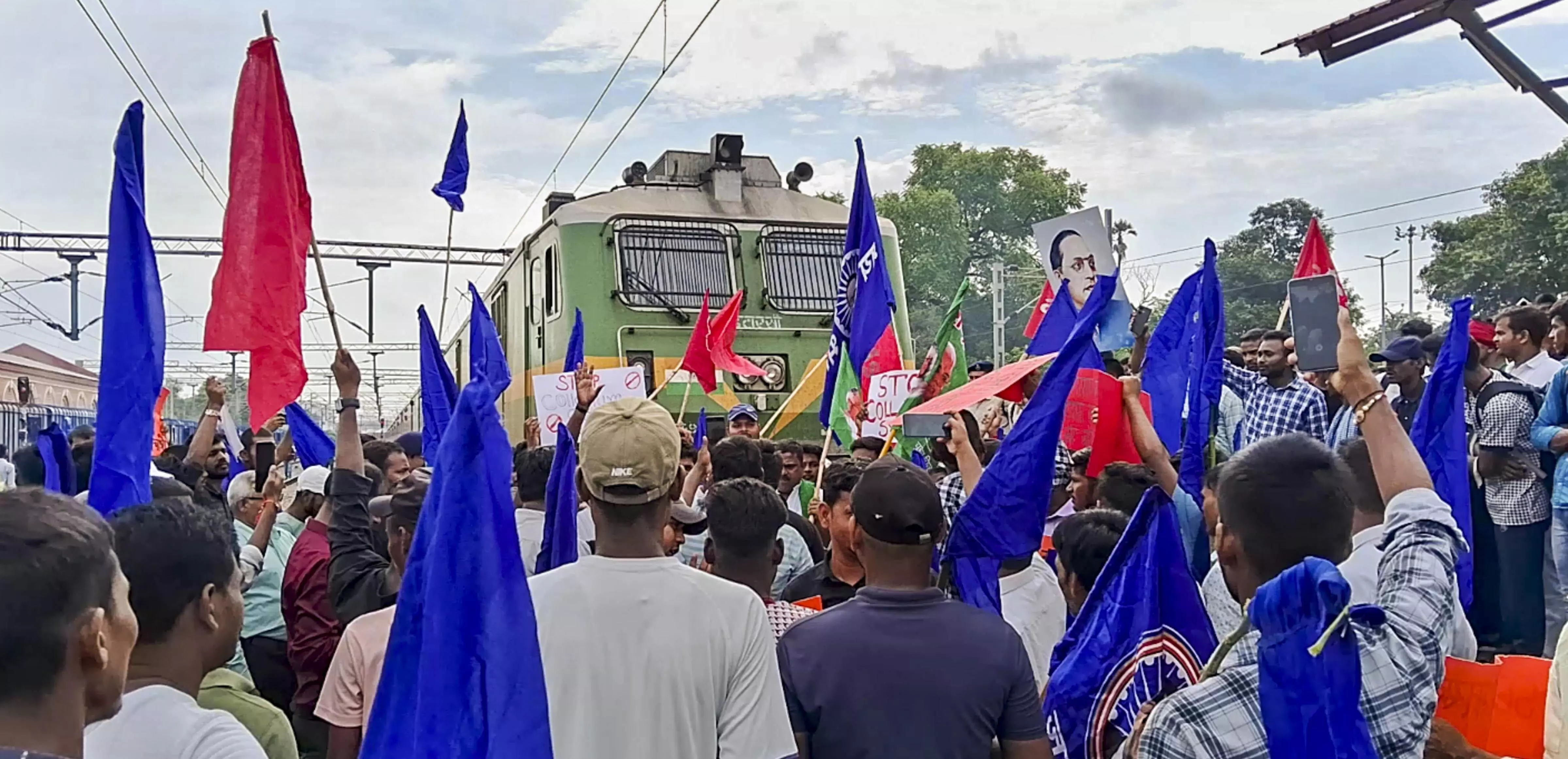Bharat Bandh: Dalit and Adivasi groups protest SC-ST reservation ruling

Several Dalit and Adivasi organisations called for a nationwide Bharat Bandh on Wednesday, demanding stronger representation and protection for marginalized communities. The National Confederation of Dalit and Adivasi Organisations (NACDAOR) spearheaded the protest, releasing a list of demands aimed at ensuring justice and equity for Scheduled Castes (SCs), Scheduled Tribes (STs), and Other Backward Classes (OBCs).
Central to their demands is the rejection of a recent Supreme Court judgment delivered by a seven-judge bench. NACDAOR argues that this judgment undermines the principles established in the landmark Indira Sawhney case, ruled by a nine-judge bench, which laid down the framework for reservations in India. The organization has called on the government to reject this ruling, contending that it threatens the constitutional rights of SCs and STs.
Additionally, NACDAOR is pushing for the enactment of a new Act of Parliament on reservations for SCs, STs, and OBCs, to be included in the Ninth Schedule of the Constitution, which would protect these provisions from judicial interference and promote social harmony. They have also demanded the immediate release of caste-based data on SC/ST/OBC employees in government services to ensure accurate representation.
The organisation is advocating for the establishment of an Indian Judicial Service, with the goal of recruiting judicial officers and judges from all sections of society. NACDAOR has called for 50 percent representation from SC, ST, and OBC categories in the higher judiciary. The organisation also highlighted the backlog of vacancies in central and state government departments, as well as in public sector undertakings, urging for their immediate filling.
Further, NACDAOR has emphasized the need for private sector companies benefiting from government incentives or investments to enact affirmative action policies. They have appealed to Dalits, Adivasis, and OBCs to participate in a peaceful protest during the Bharat Bandh.
The bandh saw a mixed reaction across the country. In Jharkhand, several public buses stayed off the roads, and schools remained closed. Chief Minister Hemant Soren cancelled his visit to Palamu due to the strike, and workers of the state’s ruling alliance—Jharkhand Mukti Morcha (JMM), Congress, and the Rashtriya Janata Dal—were seen taking to the streets in support of the bandh.
In Madhya Pradesh, the state home department issued directives to district collectors and police superintendents to maintain law and order during the bandh. Veteran Congress leader Digvijaya Singh extended his support to the bandh, criticizing the Supreme Court’s decision on sub-classification within SCs.
Odisha witnessed partial disruptions in rail and road communications, with agitators detaining trains and blocking several roads. However, government offices, banks, and educational institutions functioned normally.
In Bihar, vehicular traffic was briefly disrupted in parts of the state as protestors put up blockades. The Rashtriya Janata Dal (RJD) and other partners of the INDIA bloc extended their support to the bandh.
Rajasthan experienced a largely unaffected day, although some schools and shops were closed. Mobile internet services were suspended in Bharatpur, and the SC ST Sanyukt Sangharsh Samiti organized a rally in Jaipur against the Supreme Court order.
Overall, the Bharat Bandh, called by 21 organizations across the country, saw varying degrees of impact. The protest was sparked by the Supreme Court's August 1 ruling that allows states to make sub-classifications within SCs based on "quantifiable and demonstrable data" of backwardness and representation in government jobs. The ruling has been criticized by the protesting organizations, who argue that it undermines the basic principles of reservation in India.



